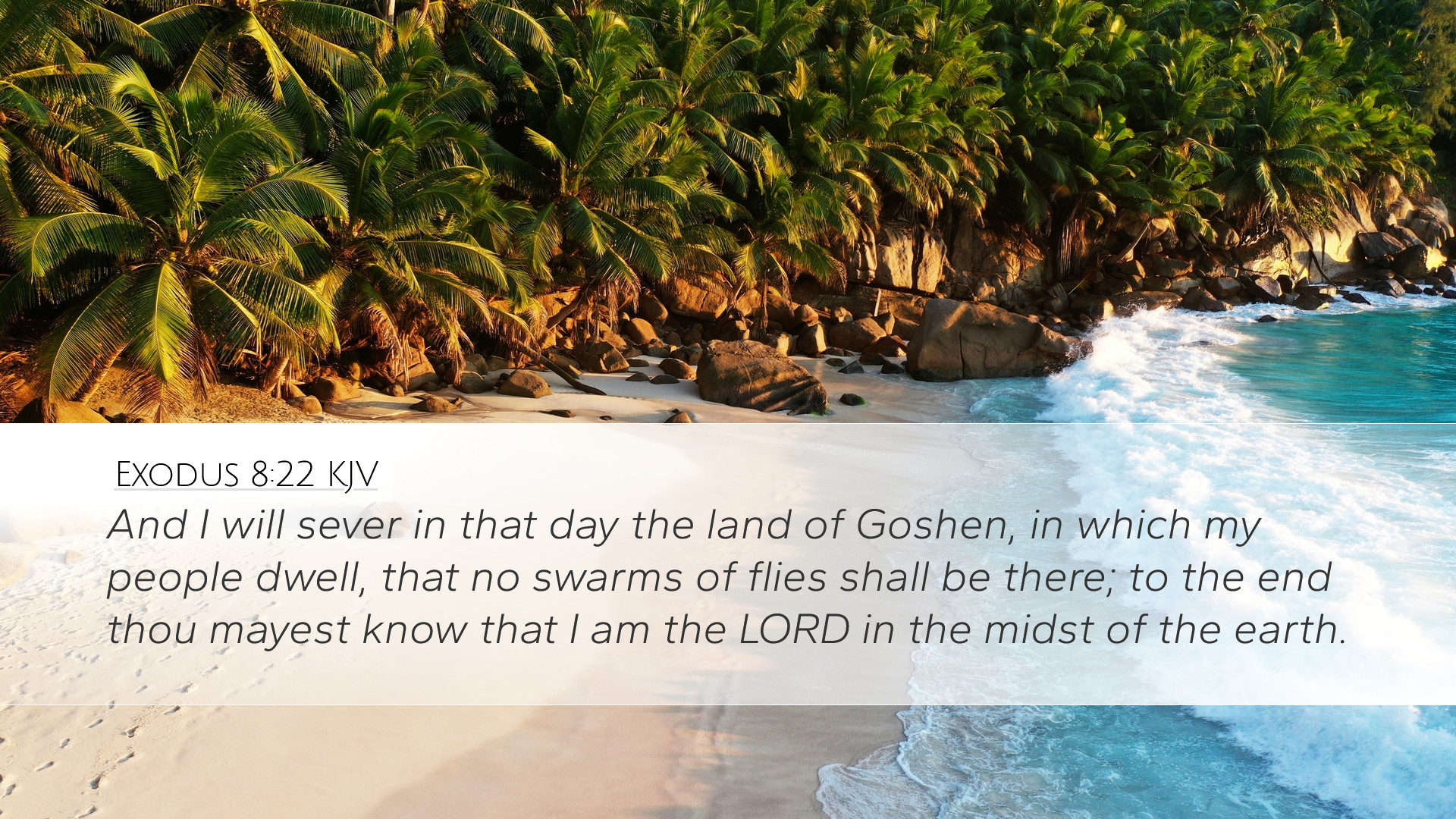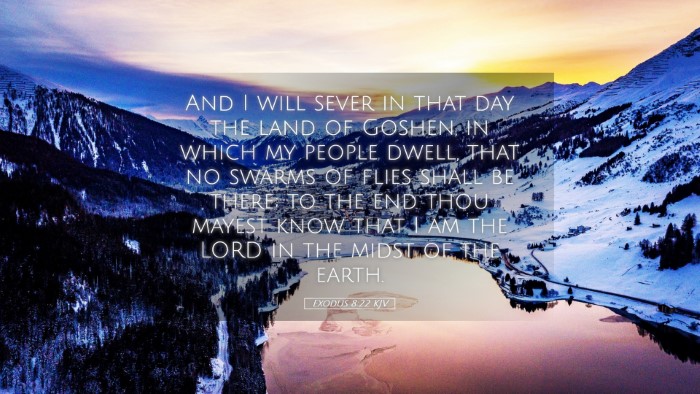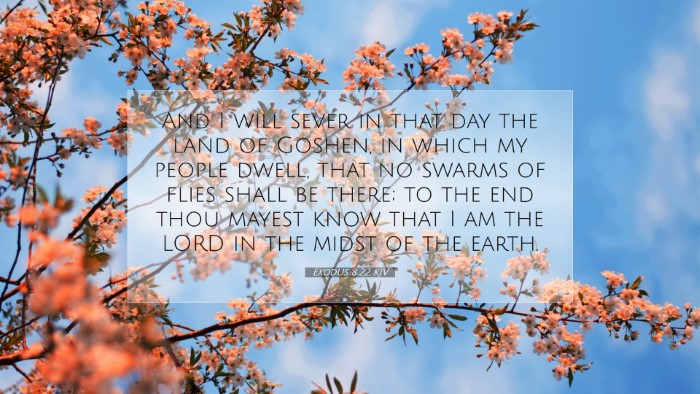Exodus 8:22 - Commentary Summary
Verse: "And I will sever in that day the land of Goshen, in which my people dwell, that no swarms of flies shall be there; to the end thou mayest know that I am the Lord in the midst of the earth." (Exodus 8:22)
Introduction
This verse is nestled within the narrative of the plagues that God sent upon Egypt as part of the deliverance of the Israelites from bondage. The significance of the division between the land of Goshen and the rest of Egypt is pivotal for understanding God's power and divine purpose.
Insights from Matthew Henry
Matthew Henry notes that God’s distinction of Goshen demonstrates His sovereign control over creation and His power to protect His own people amidst judgment. Henry emphasizes the concept of "severing" or making a distinction, which showcases the idea that God can provide refuge to His chosen ones irrespective of widespread calamity.
- Divine Protection: Henry points out that the flies symbolize chaos and corruption. God's exemption of Goshen reveals His protective grace over the Israelites, emphasizing that He can preserve His people even during divine judgment.
- Knowledge of God: The latter part of the verse emphasizes that this event serves as a sign, allowing the Egyptians to recognize God's sovereignty, thereby fulfilling the purpose of revealing His identity as the true God among the pantheon of Egyptian deities.
- Patience of God: God’s dealings with Pharaoh and the Egyptians show His patience and desire for repentance. By clearly distinguishing His people, God not only protects them but also extends grace towards the oppressors.
Insights from Albert Barnes
Albert Barnes provides a theological perspective on the verse, stressing the implications of God’s judgment and mercy. He highlights several key themes pertinent to understanding the nature of God and His interactions with humanity.
- Nature of God: Barnes affirms that God's separation of the Israelites stresses His fidelity to His covenant promises. This act illustrates His commitment to protect those whom He has called.
- Manifestation of Power: The occurrence of flies was a supernatural event showcasing God's might over nature, contrasting the impotence of the Egyptian deities who couldn’t protect their people.
- Testing of Hearts: Barnes suggests that the miracles intended to convince Pharaoh to let the Israelites go served not only as judgment but also as a means to test the hearts of the Egyptians. God's miracles could lead them toward recognition of His authority, which ultimately was a plea for them to turn towards repentance.
Insights from Adam Clarke
Adam Clarke, known for his extensive annotations, delves into the practical implications of this verse in relation to the text's historical context. His commentary brings forth an understanding of God's justice and mercy.
- Historical Context: Clarke contextualizes the verse within the greater narrative of Israel’s oppression in Egypt and the significance of the plagues as a series of divine confrontations with Egyptian gods.
- Spiritual Implications: He asserts that the division between Egypt and Goshen symbolizes a spiritual truth: God's people are called to be distinct from the world. He implies that suffering may abound around believers, yet God's providential care distinctly preserves them.
- Invitation to the Pharaoh: Clarke notes that this distinction serves as an invitation for Pharaoh to recognize the one true God. God is continually seeking to reveal Himself, even in the midst of His judgment, emphasizing both His righteousness in judgment and His mercy in invitation.
Theological Reflections
The insights provided by these commentators illuminate several theological reflections associated with Exodus 8:22:
- God's Sovereignty: The verse powerfully reaffirms the sovereignty of God over creation and His ability to execute divine judgment while simultaneously ensuring the protection of His chosen people.
- The Purpose of Judgment: God's judgment serves a dual purpose: it is both punitive and redemptive. It is meant to demonstrate His power while also calling people to repentance and recognition of the truth.
- Believers' Distinction: This verse serves as an analogy for the church today. Just as God separated the Israelites from Egypt, believers are called to live in the world yet not be of it, reflecting Christ's light amidst darkness.
Conclusion
Exodus 8:22 is a profound statement of God's intentional separation of His people from destruction. Through the commentaries of Henry, Barnes, and Clarke, we gain a deeper appreciation for the complexities of divine judgment, mercy, and the call to holiness. For pastors, students, theologians, and scholars, this verse serves as a reminder of God's unwavering protection, His desire for recognition among the nations, and the invitation for all to turn towards Him in repentance.


